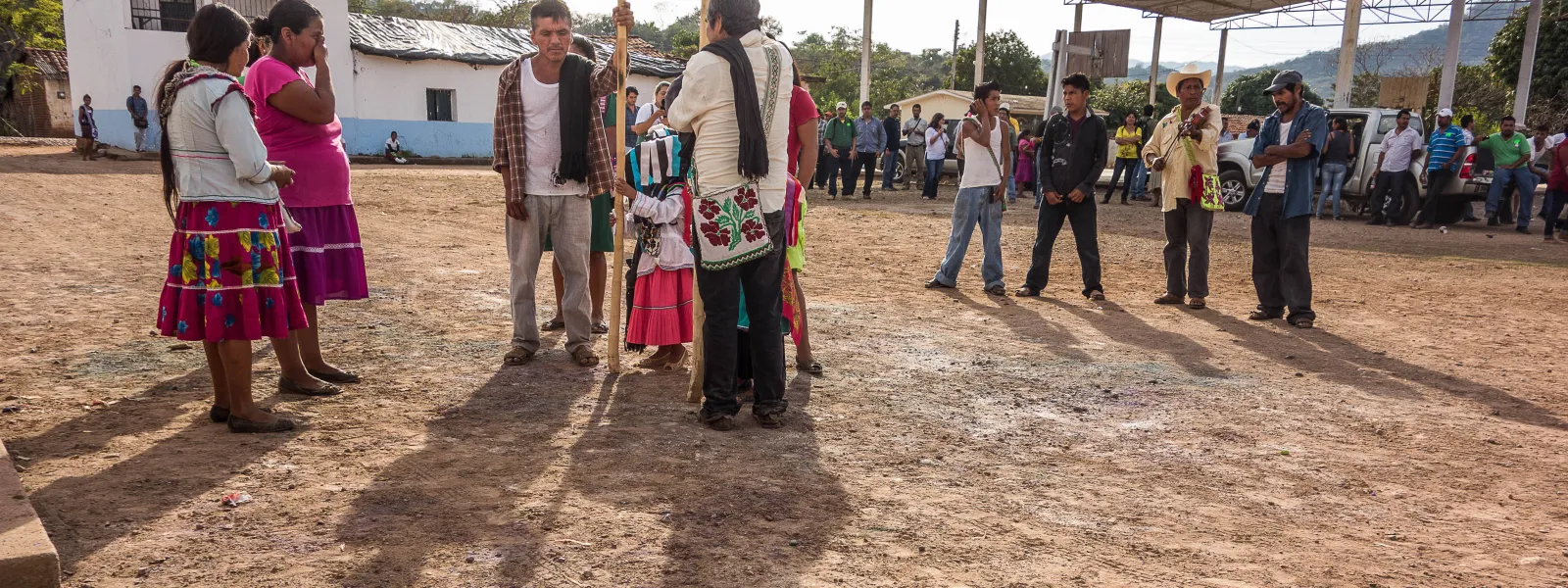
Organizations alert the United Nations that construction of the Las Cruces hydropower plant will violate human rights in Nayarit, Mexico
Photo: Diego AlvarezUN Special Rapporteurs are asked to urge the Mexican government to guarantee the rights of indigenous peoples and coastal communities that would be affected by the project.
Mexico City. The Interamerican Association for Environmental Defense (AIDA) has sent an urgent appeal to several United Nations Special Rapporteurs showing that construction of the Las Cruces hydropower plant will violate the human rights of communities in western Mexico. The project will affect coastal communities as well as the Cora, Tepehuano, Huichol and Mexicanero indigenous peoples along the San Pedro Mezquital river basin in the state of Nayarit.
We sent the appeal to Special Rapporteurs on the issues of adequate housing, indigenous rights, extreme poverty as well as the rights to food, safe drinking water and sanitation and to the Independent Expert on the enjoyment of a safe, clean, healthy and sustainable environment.
We filed the appeal on the behalf of economic, environmental and community organizations in areas that would be affected by the project. These include the Inter-Community Council of the San Pedro River, the Náyeri Indigenous Council, the Nayarit Riverside Federation, Nuiwari, the Mexican Center for Environmental Law (CEMDA), the Ecological Mangrove Group, SuMar and representatives of the town of Boca Camichín.
In the appeal, we asked the Special Rapporteurs to urge the Mexican government “to guarantee the rights of the indigenous peoples and coastal communities of the San Pedro Mezquital river to information and participation, consultation and consent, as well as to food, clean water and sanitation, and to the right to enjoy a safe, clean, healthy and sustainable environment.” We also asked the UN experts to visit the site of the proposed hydropower project to find out first hand the damages it will cause on the environment and human rights.
The project will affect indigenous lands – mostly those of the Coras – by forcibly evicting inhabitants and damaging sacred sites. This would violate the human rights to adequate housing, water and livelihoods as well as to culture and education. “Our lands and natural resources are the most important aspects of our culture," said Julián López Cánare, coordinator of the Náyeri Indigenous Council and a member of the Intercommunity Council of the San Pedro River. “Every day we fear that our sacred sites will be flooded or damaged.”
Ernesto Bolado, director of SuMar, said the appeal to the UN is a demonstration of how the Cora, Huichol, Tepehuana and Mexicanera communities were never consulted on the project as required by Convention 169 of the International Labour Organization (ILO). What is more, consent for the expropriation of land and changing its use was requested at community assemblies under false pretenses, the promise of government benefits and even with bullying.
Mexico’s state-owned electric utility Comisión Federal de Electricidad plans to build and operate the Las Cruces hydropower dam on the San Pedro Mezquital river at a location 65 km north of the city of Tepic, Nayarit. The plant will have 240 MW of installed capacity generated by three turbines fed by water from a 188-meter high dam holding a reservoir measuring 5,349 hectares. The project will operate only four months a year at regular output, and it will meeting 0.9% of the energy demand of the West Central Mexico in 2026, equivalent to 0.28% of the total installed capacity in the country[1].
“The urgent appeal is a request for United Nations Rapporteurs to investigate the facts concerning the full enjoyment of human rights of the people and communities that will be affected by the hydroelectric project," said AIDA attorney Sandra Moguel.
The environmental assessment report for Las Cruces acknowledges that the project will lead to the substitution of agriculture and small-scale livestock ranching for a dependence on fishing in the reservoir. “It is unthinkable to convert subsistence farmers into fishermen or tour operators,” said Marcos Moreno, an oyster farmer in Boca Camichín and a member of the Intercommunity Council of the San Pedro River.
You can read the alert sent to the UN Special Rapporteurs (in Spanish).
[1] Las Cruces Environmental Impact Assessment, Chapter II, pages 4-12, 18, 19 and 77.
